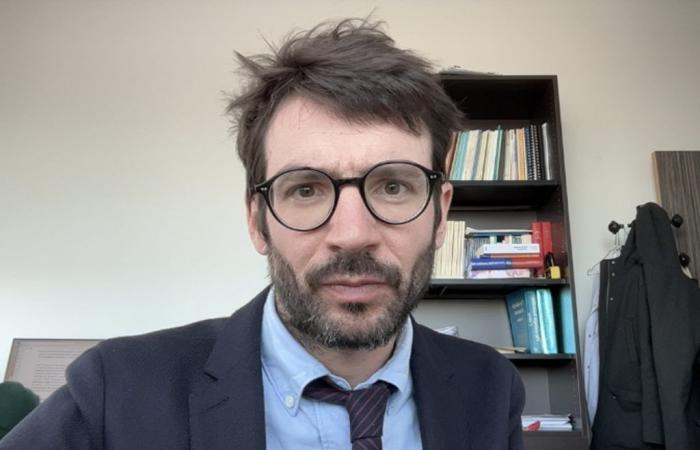Every month, a personality from the medical, political, sports or cultural world tells us about their connection with thermalism. In July, it is Jean-Arthur Micoulaud-Franchi, psychiatrist, neurophysiologist and sleep doctor, who answers our questions.
Based at the Bordeaux University Hospital and Neurocampus, Jean-Arthur Micoulaud-Franchi combines daily hospital practice, teaching and supervision of research work. Since 2018, he has worked occasionally, in collaboration with the French Association for Thermal Research (AFRETh), on subjects linking thermalism and sleep. Encounter.
What is hydrotherapy for you?
I look at hydrotherapy through the issue of thermal medicine, in line with my point of view as a doctor. Thermal medicine is a structured field of medicine whose objective is to improve the progressive course of diseases through the use of techniques from hydrotherapy (thermal baths, etc.), but also from other health disciplines (physiotherapy, nutrition, stress management, strategies focused on sleep).
The use of water has not been separated from care since the Roman period. And through this, thermal medicine questions the fact of improving illnesses but also the fact of taking care of oneself in a given space-time with specific body care practices. We too often tend to forget that healing also means taking care of ourselves and not just treating illness.
SUBSCRIBE TO OUR NEWSLETTER
I discovered thermalism by talking to thermal doctors, including Olivier Dubois who works at the Saujon thermal baths. He collaborated with psychiatrists from Bordeaux and wanted to do a study on the impact of thermalism on sleep disorders, particularly insomnia. We were put in touch because I work in a CNRS research unit that studies sleep and sleep disorders. Together, we developed a research program (SOMNOTHERM) funded by AFRETh, the final results of which are expected soon.
It is essential to emphasize that today, in the era of medical fake news (FakeMed), there is a challenge of questioning the evidence of the effectiveness of therapies and that thermalism is engaged in research, particularly through AFRETh. It is a community that is structuring itself to rigorously evaluate its practices. What is important in medicine, beyond current scientific proof, is above all the dynamics and the aim of future proof with regard to current clinical practice. What surprised me the most is that it is a living community that is engaged in clinical research and this can only be beneficial for the continuation of thermalism in the future.
What do you think are the greatest benefits of a spa treatment?
The benefits of hydrotherapy, from the point of view of a university doctor, raise the issue of the level of proof. For a treatment to be effective, it is traditional to consider that its level of proof must be based on the identification of a specific “active ingredient”. Hydrotherapy is a structured, regulated and reasoned therapeutic system, having an impact on people. What raises the question is therefore to identify in this entire system, the factor(s) which bring(s) the benefit. Is it the environment? Is it the thermal treatment itself? Is it the reduction of stress?
That said, follow-up studies and medico-economic studies show overall that thermalism, as a care system, has a positive impact on people’s health compared to traditional care. I am thinking in particular of the STOP-TAG study led by Olivier Dubois which highlighted that thermalism is more effective in the long term than an antidepressant prescribed under usual care conditions.
I think that overall, thermalism has an impact on reducing stress levels. This will improve the body’s ability to adapt and thus restore the physical and psychological resources essential to health. By acting on the stress axis, the evolutionary course of chronic diseases can truly be improved.
What would you say to someone who doesn’t know what sleep disorders are and asks you to explain?
Sleep is a physiological function of the body that is fundamental to good health. You have to take care of your sleep! Also, remember that this is not an accessory function and that nothing happens at night when you sleep. On the contrary, many fundamental physiological processes take place to be healthy. Treating sleeping illnesses and having good sleep hygiene are fundamental elements for being healthy during the day.
DOWNLOAD THE THERMAL CURE GUIDE FOR FREE
What would you say to a patient who suffers from sleep disorders and is hesitant about taking a spa treatment?
The first thing is to know where this hesitation comes from! In any case, I will tell him that this time that we can take for ourselves for three weeks is a fundamental element for health. The spa treatment offers a serene environment in which the regularity of the rhythms of day and night has a beneficial effect on sleep.
Sources :
Exclusive interview with Jean-Arthur Micoulaud-Franchi, May 29, 2024






